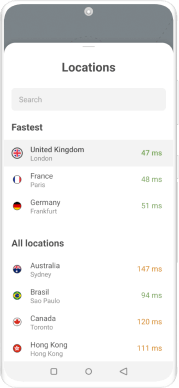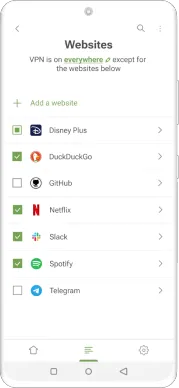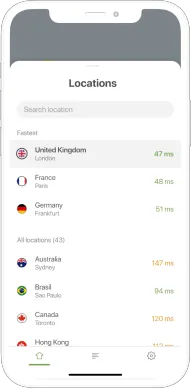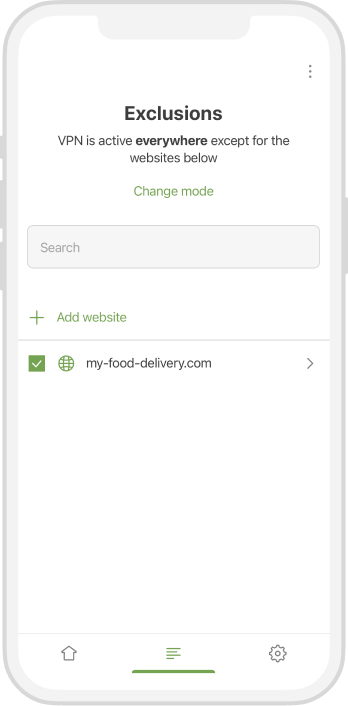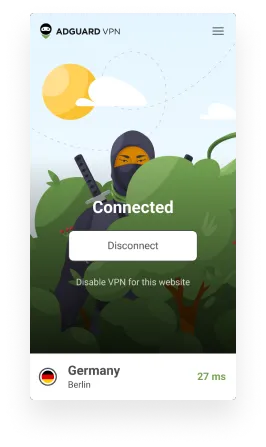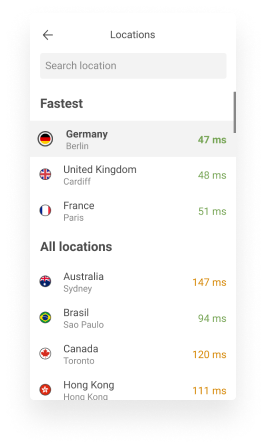Are VPNs legal: A complete guide
Before resorting to any VPN service, some users wonder if it can lead to any problems. Are VPNs legal? How come that a useful tool, created to protect connection security and privacy, has become an eyesore for some states? This article describes the legal state of VPNs in particular countries and in general.
Disclaimer: this article reflects the state of affairs as of time of publication, which may not be relevant at the time of you reading this.
Legitimate options for using a VPN
Initially, VPNs were created for one purpose — to provide employees of large companies with a secure connection to the corporate network. When the VPN “went mainstream”, it found many other legitimate uses.
It began to be used for:
Securing the Internet. Being “under the cover” of a VPN, the user can protect their network traffic from being intercepted by third parties. A VPN also secures the user’s data. Even when accessing the Internet via public Wi-Fi, the user's passwords, credit card data and other personal information as well as the device they use will be safely hidden from prying eyes.
Privacy protection. A VPN encrypts data and masks the IP address, so that it becomes impossible to track a user's online activity. No site will know who you are, how you found the resource and what you were looking for — you will remain anonymous.
Hiding the real geolocation. This VPN feature is used both to avoid ads corresponding to the real geographic location and to bypass with ease geographical restrictions on streaming services to get access to movies, TV shows, and podcasts.
Using a VPN has many non-obvious advantages as well — you can read more about them in this article. For instance, you can use a VPN if you want to save money on foreign shopping, buying airline tickets, and booking hotels.
AdGuard VPN

AdGuard VPN is the real James Bond in the world of VPN services. If you decide to download a reliable VPN service on your computer or mobile phone, opt for AdGuard VPN. In addition to the features of any self-respecting VPN, such as Kill Switch, auto-protection and split tunneling, AdGuard VPN has something unique to offer:
Proprietary protocol. With this development, you don't have to look for a compromise between speed and security. The AdGuard VPN protocol provides a high connection speed and a reliable protection. It also masquerades as ordinary traffic, so it's quite difficult to track and block.
Compatibility with AdGuard Ad Blocker. In most cases, two VPN-based apps can’t work together on a mobile device. Both Android and iOS have certain system limitations that don’t allow it. Though, users of AdGuard products have a unique opportunity to enable dual protection on their smartphone.
Lists of exclusions. The user can set AdGuard VPN to be on everywhere except for the excluded websites. Or vice versa, AdGuard VPN can be on only on the websites added to exclusions.
QUIC protocol support. In short, this feature allows you to get a reliable connection in non-ideal conditions: for example, when using mobile Internet or a public Wi-Fi network.
Why is there a legal controversy surrounding a VPN?
Why do VPNs, being so useful, have an ambivalent reputation? Firstly, some individuals use VPNs to covertly carry out illegal activities, such as fraud or extremism. Secondly, some governments restrict or ban VPNs on their territories to thwart attempts to circumvent censorship. And, accordingly, they punish violators with a fine or a real prison sentence.
In what countries are VPNs banned?
Regarding VPNs, the world is divided into three parts: countries where VPNs can be used freely and without restrictions (and even recommended for use by the FBI), countries where using a VPN is not illegal, but there are some restrictions, and countries where using a VPN is illegal.
But even in countries where there are no problems with the use of virtual private networks, fraudulent practice is always punishable, regardless of whether the offender used a VPN or not.
List of countries where VPNs are prohibited or restricted
North Korea
Unsurprisingly, on the top of the list is North Korea. The government of North Korea bans the usage of VPNs and controls access to the local “sterile” Internet Kwangmyong. So the answer for the question “are VPNs illegal in North Korea” is yes.
China
VPN services do legally operate in China, primarily due to its importance for international business cooperation. However, the country's government is doing everything possible to limit ordinary users' access to VPN so they can't get over the Great Firewall of China.
China has forced Apple’s App Store to remove all VPN applications and completely blocked Google Play, as well as all Google services. Moreover, any VPN service in China must obtain a state license, which means collecting and providing users’ personal information at the request of the state.
Using a VPN in China is like freediving in murky waters. Do it at your own risk. There have been reports of Chinese authorities issuing a fine and a disciplinary warning to a Chinese citizen who used an “unauthorized” VPN to access international websites. There have been no known cases of fines being issued to foreigners, lest to say — them serving real jail time, though.
Turkmenistan
Turkmenistan is not behind North Korea and China in its desire to control all the citizens' actions on the Internet. In addition to blocking most social networks and messengers, the Turkmen authorities have banned all VPNs.
Belarus
In Belarus, VPN services and the Tor Browser have been illegal since 2015. However, Belarussians still can use them: to date, the law does not provide any punishment for accessing blocked ressources. But the owners of VPNs and proxy servers are responsible for non-compliance with the law and may be blocked.
Russia
In Russia, the situation is similar to Belarus. A law that prohibits circumventing site blocking through VPNs, Tor and anonymizers, came into force in 2017. The responsibility for its violation lies not on the users, but on the services that don’t comply with the regulations and provide access to blocked websites.
Turkey
The Turkish government has been cracking down on VPN services and the Tor network since 2016 at the pretext of the fight against terrorism. Some of the most high-profile VPN providers are banned in the country. Nevertheless, it is not illegal to use a VPN in Turkey.
Iraq
Are VPNs legal in Iraq? The legality status of VPN in Iraq is negative. Unlike the authorities of China and North Korea, the Iraqi government is limited in technical means and cannot censor the entire Internet. However, it does block particular applications and websites, and can apprehend and punish VPN users.
Iran
Iranian citizens regularly face difficulties when trying to access certain websites. This comes as a result of websites’ policies, as well as of Iranian laws. However, a very large number of Iranian Internet users use VPNs. It’s unclear whether using a VPN in Iran is legal or not and what its consequences are. We weren’t able to find a definite answer to these questions, so you may need to perform research of your own and study the relevant laws that are in force at the time of reading.
UAE
Any content that contradicts the moral values of the country is strictly blocked. And if a user is caught trying to breach the ban and reach a site from a blacklist with a VPN, they will face a hefty monetary fine. VPNs are not illegal in the United Arab Emirates. Nevertheless, please be careful while browsing in Dubai or Abu Dhabi.
Oman
Oman generally bans any encryption of information as part of user communications. Naturally, VPN services are also banned on the territory of the sultanate. Although it's not so clear-cut here: VPNs can be used by institutions or organizations approved by the Telecommunications Regulatory Authority of Oman (TRA).
Egypt
Like the UAE, Egypt fights “immoral” content. The government blocks certain applications, such as video-call and VoIP applications. VPN services are not illegal, but there are some restrictions on their operation in Egypt.
Uganda
Uganda is a unique case. Here VPNs have fallen out of favor with the government not for political but for economic reasons. Residents of the country began to connect to VPNs in order not to pay the state tax on the use of social networks. In turn, the government instructed Internet service providers to block VPN users.
As a conclusion
At AdGuard, we believe that the Internet should be a space free of censorship and surveillance. Every user has the right to privacy. AdGuard VPN was created to be a secure wall between your personal information and the eyes of third parties. Your actual location, your computer information, and your browsing history are only your business. Not even AdGuard can see what you do on the Web: we have a strict no-logging policy. That means we don't collect or share any of your data.
If you are located in a country with a state-level censorship, we strongly recommend that you enable the Kill Switch feature. It will terminate the Internet connection if your device ever loses connection to the VPN server. Thus, the information about your web surfing won’t fall into the wrong hands.
We consider VPNs to be a great tool to protect your privacy on the Web. But we strongly oppose the use of VPNs for unlawful activities. Fraud or data theft will always be a crime, whether a VPN is blocked in your country or not.
FAQ
Is Tor a VPN?
No, the Tor network is not a VPN. VPNs and Tor have a lot in common, but their purposes differ. They both encrypt the Internet connection, but Tor routes it through a random sequence of servers run by volunteers, and VPNs route it through an intermediate server elsewhere of the user's choice. Speaking easily, Tor hides who you are and a VPN hides what you do.
Is using VPNs safe?
There is a potential danger that someone hacks the system and steals the personal data collected by a VPN service. If you want to be safe using a VPN, choose a reliable service, such as AdGuard VPN. We work in accordance with the Cypriot legislation with a strict no-log policy and don't collect your data.
There is also a threat of being prosecuted or gaining a penalty for using VPN to get access to banned websites. For example, in 2017, a Chinese citizen was fined a little over $155 USD for using VPN to visit illegal porn sites. To stay safe, always clarify if it is allowed to use a VPN in the country before going abroad. Check if there are blocked websites that are forbidden to attend.
Can VPNs be detected?
Yes, both ISPs and the websites you visit have technical capabilities to detect if somebody is using a VPN. But even if the ISP detects that you use a VPN, it still won’t be able to get access to your data and compromise your privacy.
At the same time, there are a number of ways to disguise your traffic and avoid such detection. Many VPN providers employ them in their products.
Can my ISP track me if I use a VPN?
From a technical standpoint, it’s a rather trivial task to determine if an Internet user has a VPN or not. If necessary, ISPs and censorship authorities can easily do that.
However, as long as you’re using a VPN in a country where it’s not an offense (which is true for most countries), you’re not in any danger.
Do VPNs avoid IP bans?
If a website wants to ban your IP while you’re using a VPN, the IP of the VPN service will be banned instead of yours. So, to access the site again, you need to keep reconnecting until you get another IP from the VPN service — or try choosing a different server location.
Should I use a VPN while streaming?
As mentioned above, at the time of this publication no VPN provider or user was fined for using a VPN for streaming purposes. Watching a stream with a VPN can bear several advantages: it can solve buffering issues and allow browsing geo-blocked content. But you need to be aware that the legal status of VPNs in appliance to streaming can change at any moment when a precedent occurs, so there’s always a risk.
Is it illegal to use a VPN for Netflix?
Netflix and other streaming services fight VPN providers fiercely. They often restrict access to their streaming content for anyone who they suspect uses a VPN. A number of copyright holders are currently litigating in the US against VPN providers. According to their claims, VPN services provide users with a tool to infringe the copyright.
The content providers’ point of view implies that the content is usually licensed to be consumed in a specific country or countries: on some platforms, you might have seen a message saying “the content isn’t available in your country”. According to the content providers, getting access to that content while being located in a different area with the help of a VPN violates the licensing terms.
To summarize: at the time of writing this article we are not aware of any cases when either users or VPN providers were held accountable for watching streaming content. However, this can change at any moment.
Why did Netflix block VPNs?
Netflix provides access to various libraries of movies and TV shows to users around the world, according to the regional content agreement. The streaming provider doesn't want you to circumvent these restrictions. That's why Netflix is waging a real war with VPN services, and the IP addresses of offenders are mercilessly blocked.
Are VPNs legal everywhere?
In short, no. There are countries where VPN services and their users feel free and safe. These include the US, Canada and most European democracies. But unfortunately, some countries still forbid using VPNs.
In which countries are VPNs illegal?
VPNs are illegal or partially restricted in China, North Korea, Turkmenistan, Belarus, Russia, Egypt, Oman, and others.
Are VPNs illegal in Russia?
It is not forbidden to use VPNs in Russia, but there are certain restrictions. And for an attempt to circumvent them, Roskomnadzor has the right to block a VPN service. This has already happened to Hola! VPN, ExpressVPN, KeepSolid VPN Unlimited, Nord VPN, Speedify VPN, and IPVanish VPN, which have been found to violate Russian law.
Are VPNs illegal in Germany?
VPNs are completely legal in Germany. Currently, there is no legislation in the country that prohibits the use of VPNs. This means that you can use a VPN without worrying about any legal consequences.
As far as we know, many German citizens often use VPNs for torrenting. This is because Germany is known as a country where downloading so-called “copyleft” content can lead to significant fines and lawsuits for those who are engaged in it.
Are VPNs illegal in China?
There is no law in China that prohibits VPNs. However, the Chinese government is interested in limiting the access to VPNs for ordinary citizens.
Are VPNs illegal in India?
Using a VPN in India is considered legal as long as you don't start using it for illegal purposes, such as gaining access to blocked websites. There were some initiatives to restrict the usage of VPNs, but they were postponed until at least 2023. The situation is still rather volatile, so do your research before using a VPN in India.
Are VPNs legal in Italy?
In Italy there are no restrictive laws related to the work and use of VPNs. So their usage is entirely legal.
Can you go to jail for looking at a website?
The answer will depend on the content of the website. The use of VPN has nothing to do with it. For example, downloading child pornography is a crime, for which you will face prosecution, even if you don’t use a VPN.












